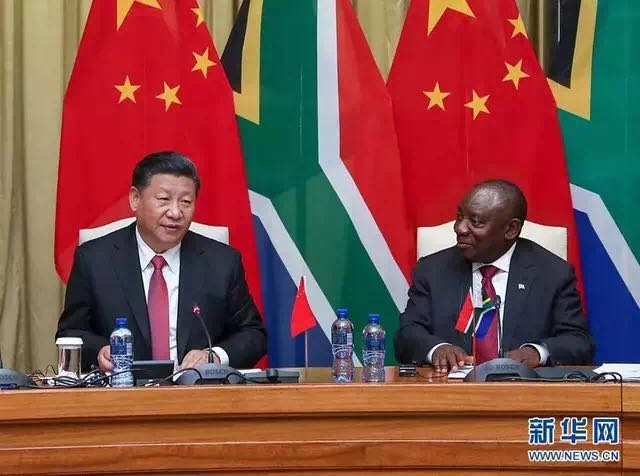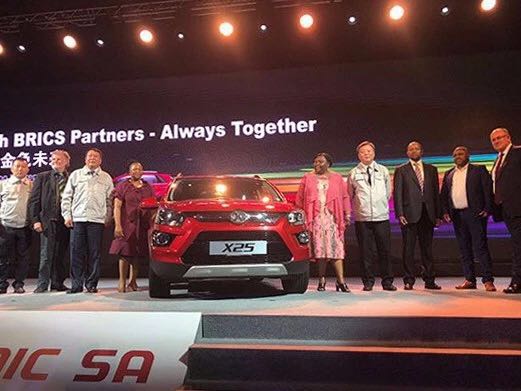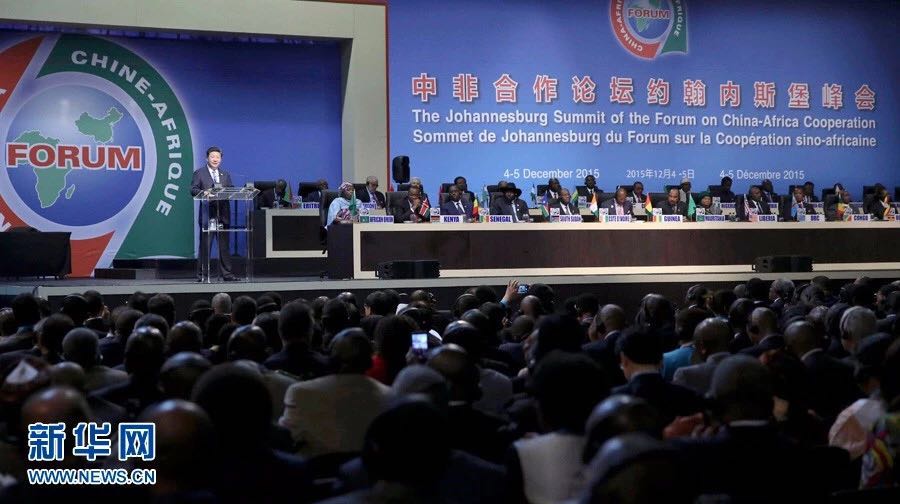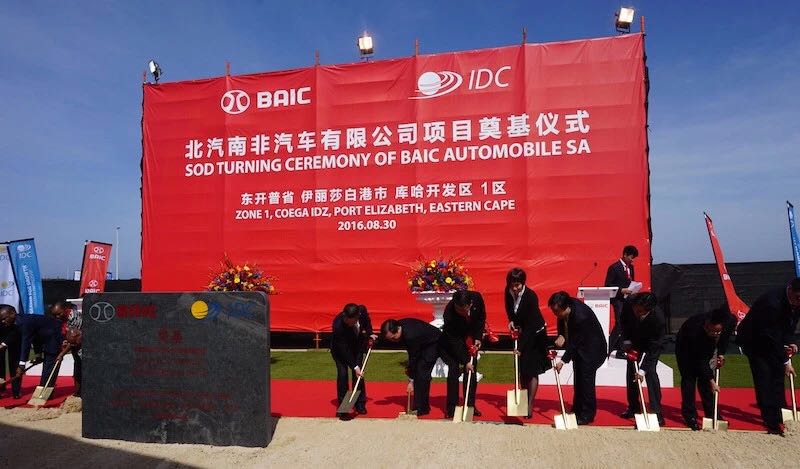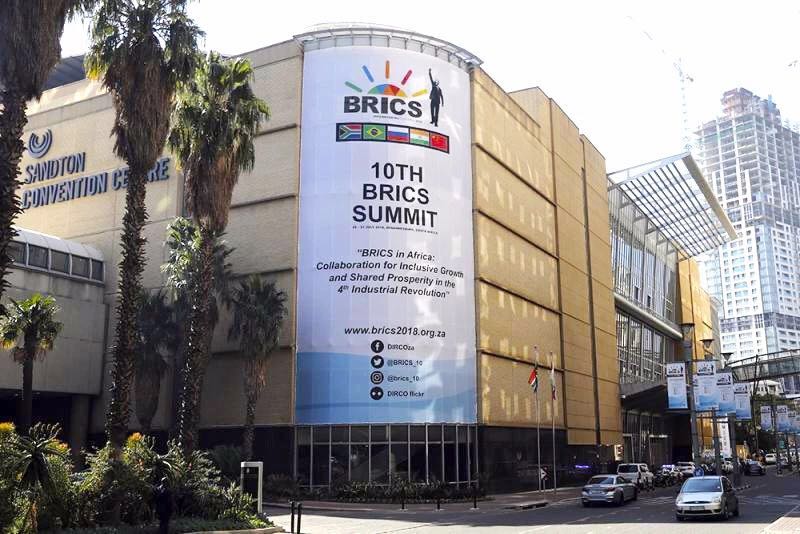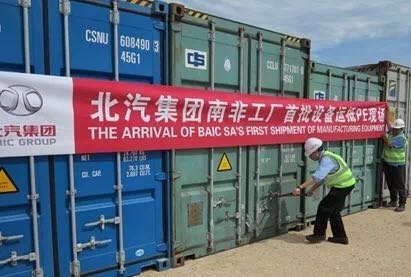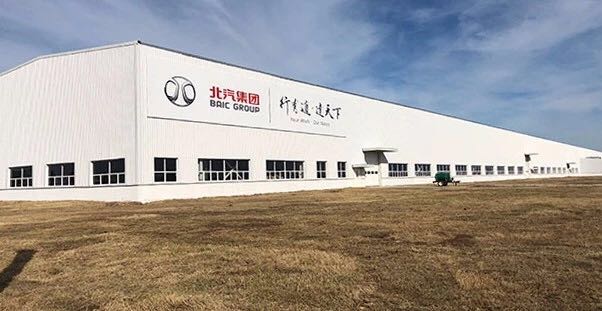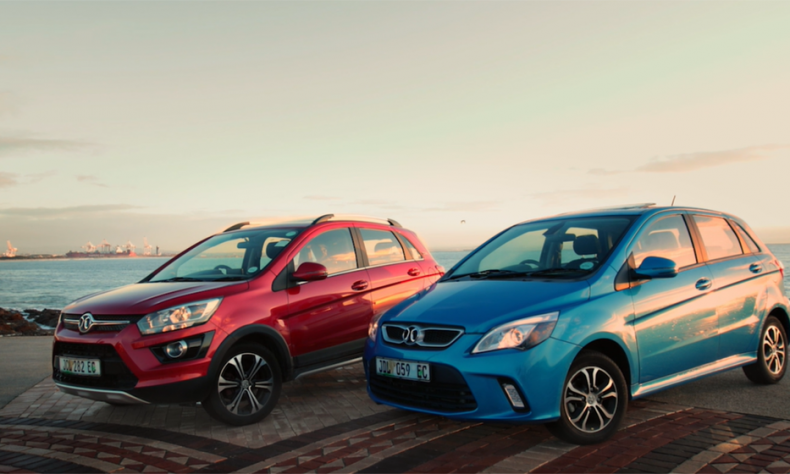
Exclusive: First Car Rolls off in BAIC South African Factory
This is a first in the history of China’s automobile industry and a breakthrough since diplomatic relations were established between China and South Africa.
By Li Zhaoyi
On Tuesday, the Governor and department officials of South Africa’s Eastern Cape Province, South Africa’s Department of Trade and Industry and South Africa’s major media gathered in South Africa’s Coega Special Economic Zone in the beautiful Nelson Mandela Bay to witness the first brand new X25 SUV rolling off production line at the BAIC South Africa factory.
Δ Chinese President Xi Jinping holds talk with South Africa President Ramaphosa in Pretoria on July 24.
During his state visit to South Africa, Chinese President Xi Jinping, together with South African President Cyril Ramaphosa, witnessed the first car rolling off production line at the new BAIC SA factory through video conference. This is a first in the history of China’s automobile industry and a breakthrough since the establishment of diplomatic relations between China and South Africa. The heads of the two states expressed their sincere congratulations and high expectations for the future development of the BAIC project and the strategic cooperation between the two countries.
Δ President of BAIC Xu Heyi(third from left) and several guests attend off-line ceremony of first car produced by South African industry.
The first car rolling off production line serves as the best proof of the cooperation and development achievements between China and South Africa and their active participation in the “Belt and Road Initiative” and provides valuable reference experience for many Chinese companies wishing to enter Africa.
Development and Planning of BAIC South Africa Plant
In December 2015, President Xi Jinping proposed important contents including the “Five Major Pillars” and the “Ten Major Plans” at the Johannesburg Summit of the Forum on China-Africa Cooperation (FOCAC). Under the framework of the “Ten Major Plans,” China and South Africa signed 26 bilateral agreements with a total value of 41.9 billion RMB. Among them, BAIC Group and South Africa’s state-owned Industrial Development Corporation (IDC) signed a memorandum of understanding on the joint venture and cooperation of the BAIC South Africa plant project with planned investment of 800 million US dollars (about 5 billion RMB) and a planned annual production capacity of 100,000 units, which marks the official start-up of the BAIC South Africa plant project.
Δ In December 2015, President Xi Jinping proposed important contents including the “Five Major Pillars” and the “Ten Major Plans” at the Johannesburg Summit of the Forum on China-Africa Cooperation (FOCAC).
The factory was officially launched on August 30, 2016. Over the past two years, through the joint efforts of Chinese and South African joint venture partners and more than 1,350 local workers, a modern automobile factory in the South African Coega Special Economic Zone has begun to take shape. Now that the first car has rolled off production line, the BAIC South Africa plant has achieved a major breakthrough. It is reported that the BAIC South Africa plant is expected to be officially put into operation at the end of this year.
The BRICS Summit, which is held in Johannesburg on Wednesday, themed “BRICS in Africa: Collaboration for Inclusive Growth and Shared Prosperity in the 4th Industrial Revolution.” The BAIC South Africa plant’s first car serves as a gift to the BRICS summit and gives the most appropriate response to its theme.
Δ On July 21, huge promotion banner is hung on the wall of Sandton Convention Centre, Johannesburg, South Africa, to welcome the upcoming 10th BRICS summit.
It is reported that the construction of the BAIC South Africa plant project will be implemented in two phases. By the end of 2019, it will have assembly, painting and welding capacities and then gradually reach an annual production capacity of 50,000 units. In its second phase, it plans to build stamping workshops, expand and reconstruct its three workshops in accordance with capacity and technology requirements, and increase its annual production capacity to 100,000 units. BAIC South Africa plant is expected to become an important automobile manufacturing base in South Africa that will radiate over the African continent and other overseas markets, and become a new benchmark for the globalization strategy of Chinese self-own brand auto companies.
Bringing New Opportunities for South African Economic Development
According to BAIC and IDC, once the first phase of the BAIC South Africa plant is completed, its localization rate will reach 30%; by 2022, it will reach 60%. Together with other Chinese joint ventures that have entered the South African market, BAIC will provide comprehensive resources in funds, technology, products, talents and brands, and continue to provide strong impetus to the economic cooperation of China and South Africa. In addition, it will actively improve local employment rate and talent skills to promote the coordinated development of surrounding industrial parks. During the plant’s construction phase, BAIC hired 1,540 local employees. Once production starts, the ratio of localized labor will reach 90-95%. In the future, BAIC will also dispatch Chinese professional teams to South Africa to train localized employees and management talents and export technology and management experiences. In the agreement with the Coega Special Economic Zone, the initial requirement of localized labor ratio was 85%. The ratio has now exceeded 85%, which has contributed to boosting local employment.
In order to develop South Africa’s local car spare parts, supply chain, BAIC South Africa also strives to establish cooperation with local suppliers and has successfully signed a memorandum of understanding with the first batch of suppliers. This year’s localized parts procurement program will include 39 parts.
BAIC will also fully integrate its own advantages, and drive the relevant Chinese or international automobile industry chain enterprises to South Africa to settle in Nelson Mandela Bay. The factory is still under construction. Yet the market has begun to warm up. In over just a year, there are already 17 special dealers, and their number of expected to expand to 27 by the end of 2019.
Integrate with Local Companies after Landing
At first, due to the lack of sound communication mechanism with the local small business community, of the BAIC project went through some twists and turns. Together with the South Africa’s state-owned Industrial Development Corporation (IDC), BAIC immediately conducted strategic research and developed a set of fair and transparent communication mechanisms and screening processes to ensure that emerging medium-sized black-owned SMEs from local communities can participate in the construction and development of the project.
BAIC South Africa Industrial Park
C S Marx, chairman of the Nelson Mandela Bay SME Forum, spoke highly of the mechanism. He said that this was the first time they really felt that they were recognized and respected, and truly felt the sense of ownership in participating in local construction and economic development. They even didn’t feel felt the same sense of acknowledgment and belonging given by BAIC from their local municipal government.
Reported from South Africa by Liu Zhaoyi, Executive Director of Zhejiang Normal University South Africa Branch
Editors: Ning Jing, Cai Hairuo
Related Readings:
President Xi Jinping Inaugurates a “New Golden Decade” In Johannesburg
 Facebook
Facebook
 Twitter
Twitter
 Linkedin
Linkedin
 Google +
Google +
